As educators, we respect custodianship of Traditional Knowledge and welcome Traditional Cultural Expressions. We work to empower students and educators with scientific resources needed to make culturally appropriate decisions of how their Canadian Light Source experience will contribute to future generations and improve Indigenous communities. Curiosity and exploration are central to our programming approach.
Elder Engagement
Elder Advisory
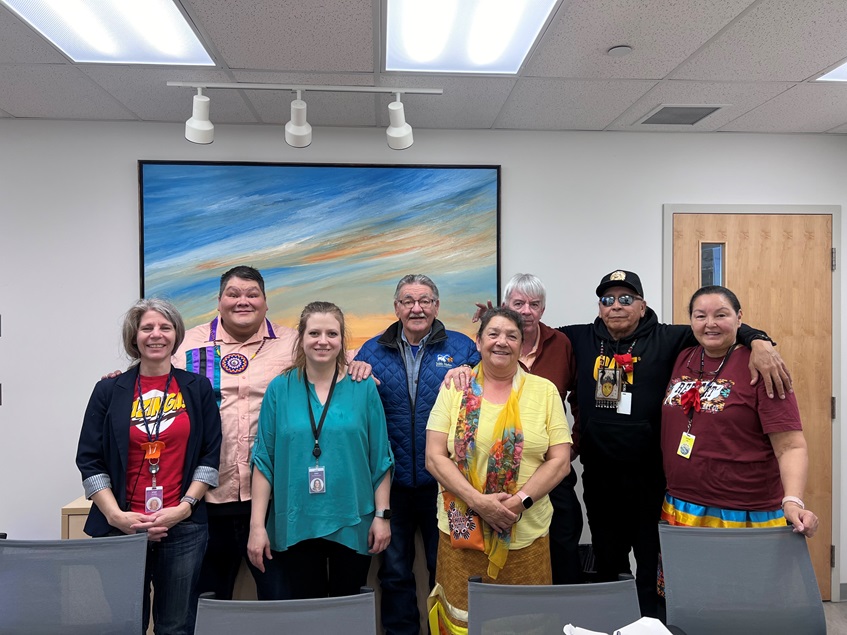
We are honoured to collaborate with Elders from various communities who offer invaluable guidance to the CLS Education Team with advice in how to move forward with our programming and resources in a respectful and meaningful way. On our Elder Advisory, we have:
- Elder Norman Fleury – Michif Elder and language expert, originally from St. Lazare
- Gambina Tim Eashappie Sr. – Traditional Knowledge Keeper from Carry the Kettle Nakoda Nation
- Elder Cecile Smith – Traditional Knowledge Keeper from Fishing Lake First Nation
- Gambina Kathy Wahpepah – Traditional Knowledge Keeper from Carry the Kettle Nakoda Nation
We appreciate having the opportunity to sit and listen to these Elders, and we cherish the relationships we build with them through this process.
Project Protocols & Indigenous Ethics Advisory
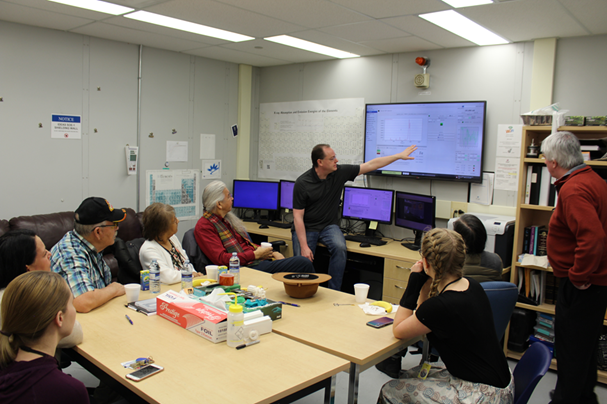
The Canadian Light Source Indigenous Education projects followed advice for Traditional Protocol and Ceremony with:
- Traditional Knowledge Keeper Stewart Prosper
- Traditional Knowledge Keeper Yvonne Chamakese
- Traditional Knowledge Keeper Joseph Naytowhow
- Métis Nation of Saskatchewan Cultural and Education Director Lori Skjeie
- Federation of Sovereign Indigenous Nations (FSIN) Senior Researcher/Analyst - Science & Math, Dale Worme
- Former CLS Education Coordinator - Indigenous Programs Bernie Petit
Highlights of Our Indigenous Engagement Initatives
Students on the Beamlines
Vuntut Gwitchin First Nation
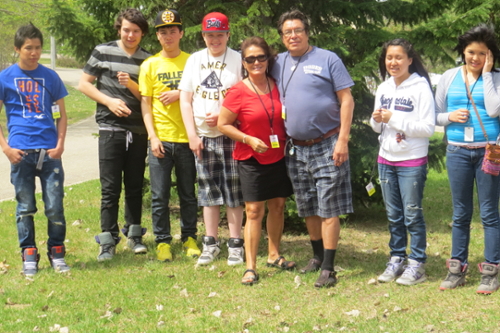 High school students from the Vuntut Gwitchin First Nation took part in Students on the Beamlines and explored the impact of climate change on the environment of the Porcupine Caribou Herd. Their research focused on changes in the chemical composition of water and plants in the area. The students analyzed caribou samples to identify differences and found that zinc was present in both the caribou meat and the lichen they consume, but none was found in the surrounding soil. This could show environmental pattern in zinc accumulation in the local ecosystem.
High school students from the Vuntut Gwitchin First Nation took part in Students on the Beamlines and explored the impact of climate change on the environment of the Porcupine Caribou Herd. Their research focused on changes in the chemical composition of water and plants in the area. The students analyzed caribou samples to identify differences and found that zinc was present in both the caribou meat and the lichen they consume, but none was found in the surrounding soil. This could show environmental pattern in zinc accumulation in the local ecosystem.Carry the Kettle Nakota Nation
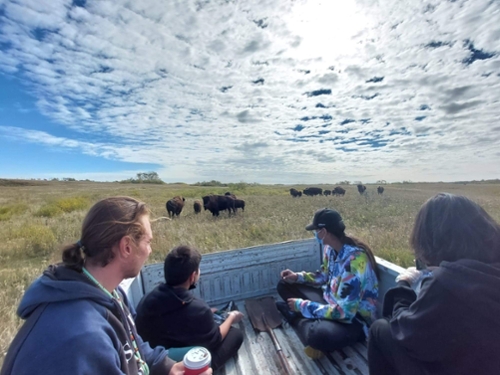 High school students from Carry the Kettle Nakota Nation participated in our bison project which lead to an immersive experience on the beamline. They explored the significance of the buffalo through the guidance of their Gambinas Tim Eashappie Sr. and Kathy Wahpepah, learning about bison evolution and the Nakota Tatonka ha Creation Story, while also learning Nakota science language. These students collected various bison samples including hair and dung, and examined soil, feed and goldenrod to analyze observable patterns using the IDEAS beamline. With the support of their mentors, these students effectively utilized the synchrotron to contribute to existing knowledge.
High school students from Carry the Kettle Nakota Nation participated in our bison project which lead to an immersive experience on the beamline. They explored the significance of the buffalo through the guidance of their Gambinas Tim Eashappie Sr. and Kathy Wahpepah, learning about bison evolution and the Nakota Tatonka ha Creation Story, while also learning Nakota science language. These students collected various bison samples including hair and dung, and examined soil, feed and goldenrod to analyze observable patterns using the IDEAS beamline. With the support of their mentors, these students effectively utilized the synchrotron to contribute to existing knowledge. Light Source Student Experience
Chief Paskwa Education Centre
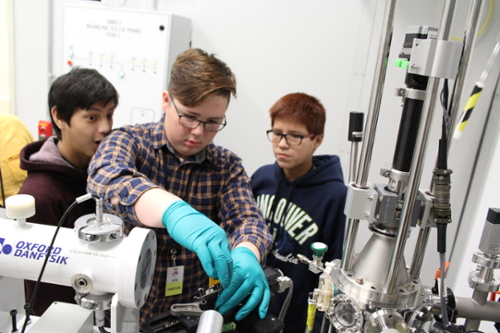
Students from Chief Paskwa Education Centre participated in the Light Source Student Experience, where they toured the facility, engaged with staff to learn about various career opportunities at a research facility, and conducted soil sample analyses using data collected from the IDEAS beamline.
Science of Bannock Video & Resource
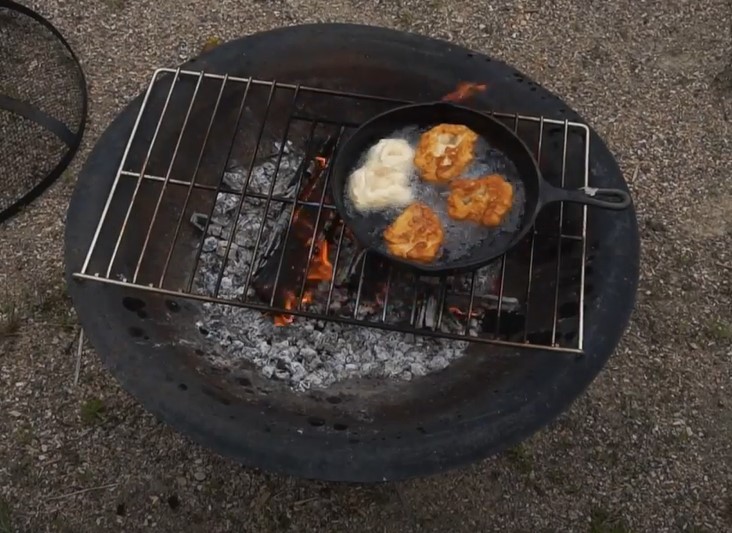
Bannock may only have five ingredients, but there's much more to the process than mixing. The CLS Education Team connected Traditional knowledge with physics and chemistry concepts like heat transfer, acids and bases, and thermodynamics. Animated explanations in the video bring these scientific ideas to life.
Watch the video to experience the full journey, and explore the accompanying lesson plan.
Indigenous Engagement Starting Points Resource
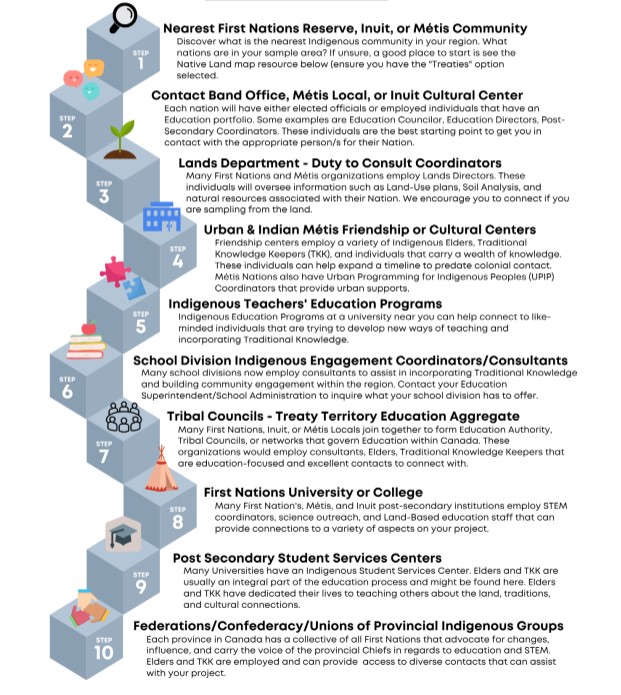
This resource helps students and teachers navigate the Truth and Reconciliation Commission's Calls to Action in science education. It highlights the importance of Indigenous perspectives, offers practical steps for fostering student understanding, and shows how CLS Education programs align with the TRC. A checklist and discussion prompts are also included to help start meaningful connections.
Read this resource to see how you can start.
To see more Indigenous Engagement resources, check out our Virtual Classroom!
Educators' Workshop
Prairie Spirit School Divison
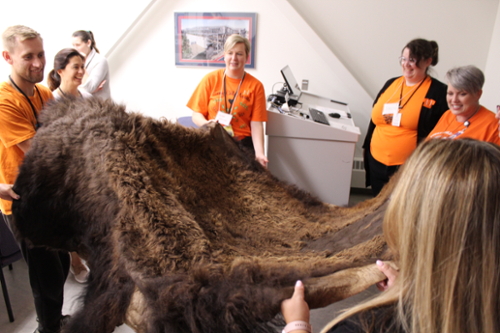
A group of teachers from the Prairie Sprit School Division came together to learn how to weave traditional knowledge and mainstream science using the synchrtron at the Canadian Light Source. Elder Marilyn Parenteau and Bernie Petit help guide the teachers in knowledge of the buffalo as they learned about the buffalo as they looked at various buffalo hairs using the IDEAS beamline.
Virtual Professional Development
Indigenous Perspectives in Chemistry and Physics
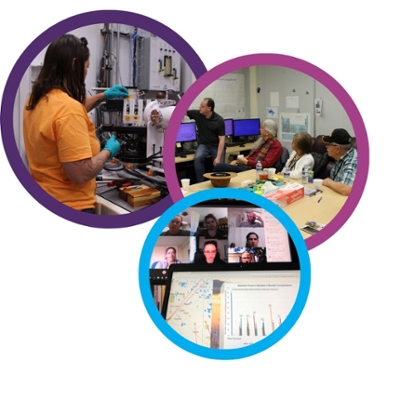
This professional development was avaliable for educators across Canada to learn about different knowledge systems, etuaptmumk in the classroom, and had an expert panel discussion with Elder Jeanette Bugler, Corey Gray, Kori Cuzy, and Tina Rioux. Through these sessions we aimed to bring awarness to the weaving of Indigenous perspectives into science and how thay can look like.
Click here to see upcoming Professional Development Opportunities!
2024 Turtle Island Indigenous Science Conference
Dallas Pelly Presented: Weaving Indigenous Knowledge with mainstream Science using Canada's Synchrotron in STEM Education
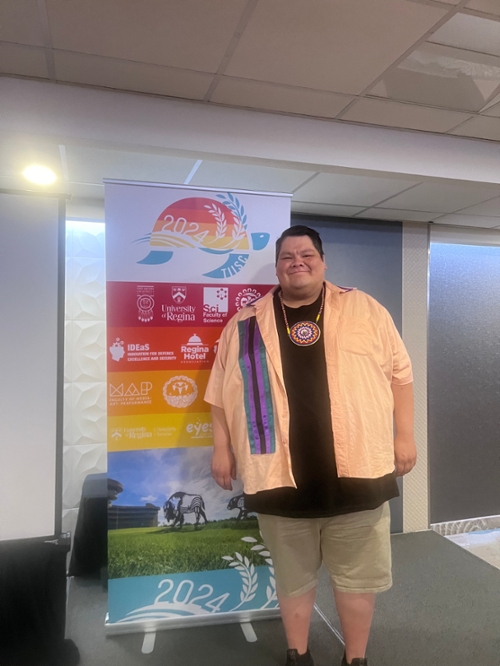
The 2024 Turtle Island Indigenous Science Conference, held at the University of Regina, gathered Indigenous scholars, Knowledge Keepers, and experts to share advancements in Indigenous science, education, and policy. The conference emphasized authentic approaches to learning, youth engagement in STEM, environmental stewardship, and strengthening community connections, honouring ancestral knowledge while advancing innovative research. Dallas Pelly presented on how the CLS Education Team promotes science inquiry in a reconciliation context, working to weave Indigenous perspectives into mainstream science.
TRIUMF Science Week 2024
Dallas Pelly Presented: Weaving Indigenous Knowledge with Mainstream Science using Canada’s Synchrotron in STEM Education
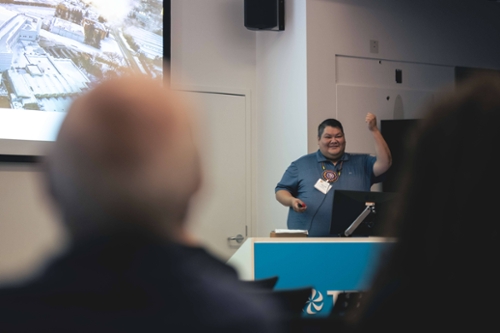
TRIUMF Science Week 2024, was an event focused on the latest advancements in particle physics, nuclear science, and research infrastructure. The week featured key presentations on TRIUMF's scientific achievements and outlined their five-year strategy plan. Highlights included sessions on Indigenous learning, equity, diversity, inclusion (EDI), sustainability, and celebrations marking TRIUMF’s 50th anniversary of beam production. Dallas Pelly presented on how the CLS Education Team weaves Indigenous knowledge into programming, creating a welcoming space to increase Indigenous participation in STEM education.
Annual FSIN Science Fair
Federation of Sovereign Indigenous Nations
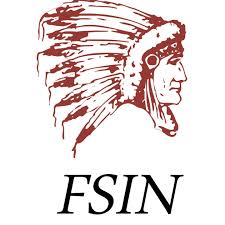
The FSIN Science Fair brings in two projects from each First Nations school, allowing students to showcase their science based on a central theme. For many years, the CLS Education Team has partnered with FSIN to increase STEM education through school visits, volunteering as judges at the science fair, hosting educators and students at the CLS for tours or programming, and more. This relationship has been developed over time and continues to grow.
Collaborating with Organizations
American Indian Centre and The Nature Conservancy

Through previous programming, the CLS Education Team has collaborated with organizations like the American Indian Center in Chicago and the Nature Conservancy in Illinois to support Indigenous communties. The goal was to reconnect with bison, a symbol of healing, addressing the legacy settler-colonial projects that targeted by First Nation and buffalo populations. Through these collaborations, we hoped to help rebuild connections, nuturing cultural ties and empowering future generations of Elders and cultural practicinors.
